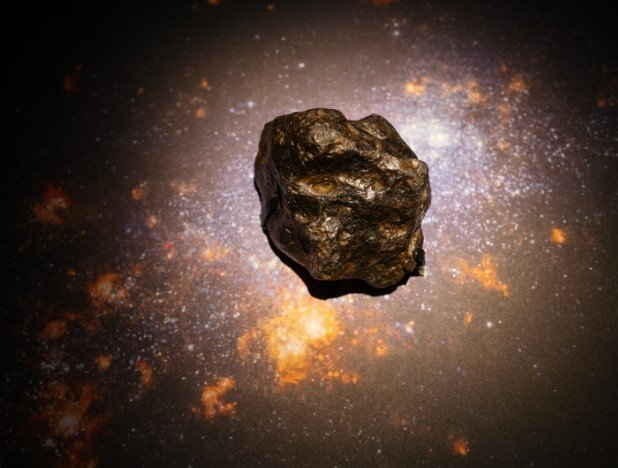A quiet June afternoon in Henry County, Georgia, turned into a once-in-a-billion-years kind of moment when a meteorite tore through a suburban home’s roof. Scientists now say it’s at least 20 million years older than Earth itself.
A Crash That Felt Like a Gunshot
Residents described the sound as a “close-range gunshot.” It happened on June 26 in McDonough, a city just south of Atlanta.
The rock didn’t politely roll up to the porch. It punched through the roof, rattled the homeowner’s HVAC system, and scattered fragments across the living room.
Police were called first. Scientists came next.
From Roof Hole to Research Lab
Those shards ended up in the hands of Scott Harris, a planetary geologist at the University of Georgia. Harris, who’s spent years studying space debris and asteroid impacts, says this one is special.
One look under the microscope, and the timeline didn’t match our planet’s. The McDonough Meteorite is clocking in at over 4.56 billion years old — about 20 million years before Earth even existed.
“This rock’s been on a long trip,” Harris told local media. “To understand where it came from, we have to figure out what group of asteroids it belongs to.”
Why It’s Older Than Earth
It’s all about the Solar System’s origin story. Before Earth formed, the early solar nebula was filled with dust and gas that condensed into small rocky bodies — the building blocks of planets.
Some of those pieces never fused into a planet. They stayed out there, orbiting quietly for billions of years, until something knocked them loose.
McDonough’s meteorite appears to be one of those early survivors, possibly from the asteroid belt between Mars and Jupiter.

A Rare Scientific Opportunity
For planetary scientists, a meteorite like this is a time capsule. It hasn’t been weathered by Earth’s processes. No rivers, no plate tectonics, no erosion — just the same chemistry it had when the solar system was a cosmic toddler.
In Harris’s lab, the first step is classification. That means figuring out if it’s a chondrite (a common, primitive meteorite), an achondrite, or something rarer. The mineral patterns and isotope ratios will tell the story.
Homeowner’s New Claim to Fame
The homeowner, who hasn’t been identified publicly, might now be living in one of the most famous addresses in McDonough.
They also own one of the rarest geological specimens on Earth. Even a small meteorite of this age can be worth thousands of dollars to collectors — though many choose to loan them to museums.
And yes, the roof is fixed.
How Common Are House-Hitting Meteorites?
Not very. According to NASA, the odds of a meteorite hitting your house are staggeringly low — in the range of once every few decades somewhere on Earth.
When it does happen, it tends to make headlines. Here’s how McDonough’s compares to a few famous incidents:
| Year | Location | Meteorite Name | Notable Detail |
|---|---|---|---|
| 1954 | Sylacauga, Alabama | Hodges | Struck a woman while she was napping |
| 1992 | Peekskill, New York | Peekskill | Hit a parked Chevy Malibu |
| 2025 | McDonough, Georgia | McDonough | Estimated to be 20M years older than Earth |
Why It Survived the Atmosphere
Most meteors burn up completely before reaching the ground. The McDonough rock was large and dense enough to survive fiery entry, shedding only outer layers before impact.
That “gunshot” sound? It was the final shockwave of space meeting drywall.
Scientists Are Racing the Clock
Once a meteorite hits Earth, it starts changing. Moisture, oxygen, and microbes all begin altering its surface. That’s why scientists moved quickly to secure the fragments for analysis.
“Every hour that passes, you’re losing a bit of that pristine history,” Harris explained.
The team is now running isotope dating, X-ray diffraction, and scanning electron microscope tests to pin down its exact origin.
A Reminder of How Small We Are
There’s something humbling about a chunk of rock older than our planet sitting on someone’s coffee table in Georgia.
It’s a reminder that Earth is just one chapter in a much longer cosmic story — and that sometimes, the universe sends us a souvenir.
